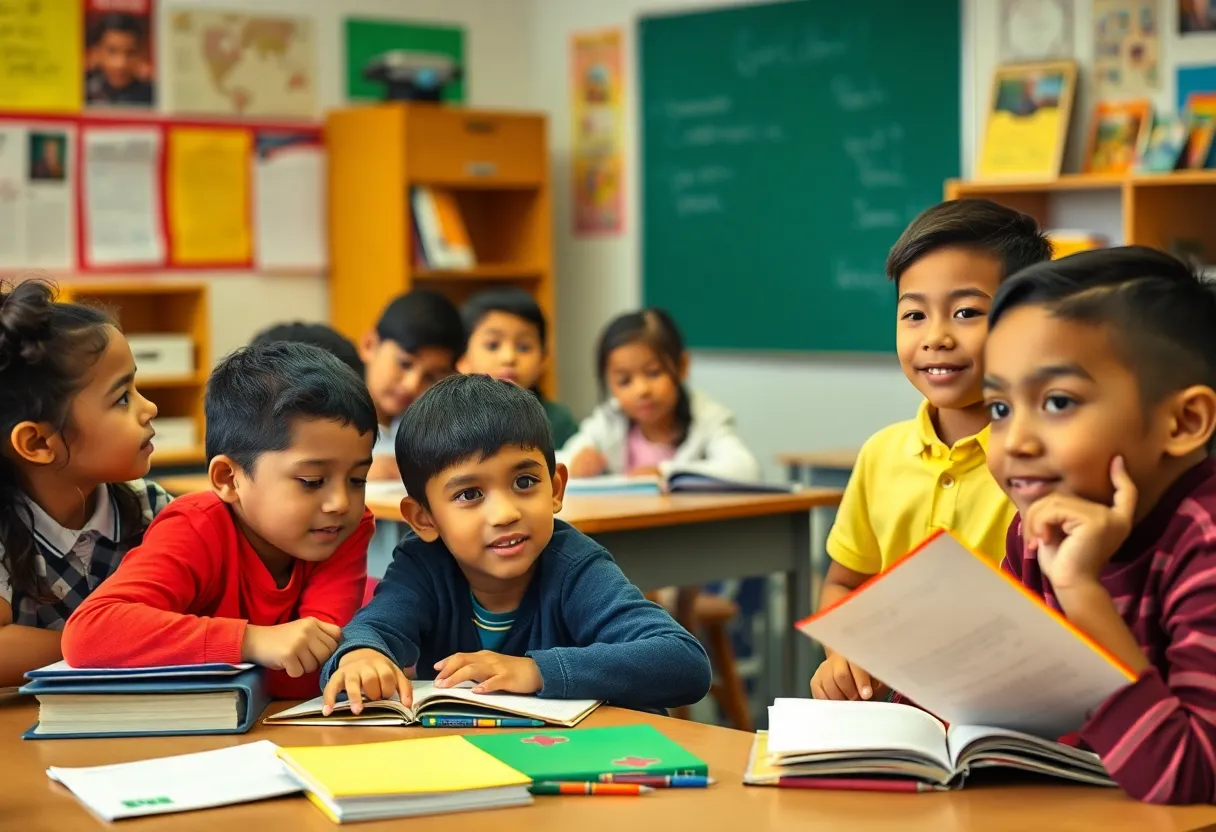News Summary
The Texas Legislature has approved an $8.5 billion public education package aimed at enhancing student funding, teacher salaries, and special education resources. Central to this legislation is Senate Bill 2, which introduces a significant school voucher program allowing families to use public funds for private school tuition. While proponents argue for school choice, concerns arise over the potential impact on public education funding and equity, especially as Dallas leaders strive for improved public education standards. The program is set to begin in the 2026-2027 academic year, pending further approvals.
Austin, Texas – The Texas Legislature has approved a groundbreaking $8.5 billion public education package, marking one of the most significant investments in the state’s education system. This legislation, passed during the recent legislative session, focuses on enhancing per-student funding and setting aside crucial resources for teacher salaries, special education, transportation, insurance, utilities, and early childhood learning.
Among the components of this education package is Senate Bill 2, which introduces a major school voucher program estimated to be one of the largest in the nation. This initiative allows families to utilize public funds for private school tuition and associated educational expenses, a point of significant controversy among educators and parents alike. The governor and other proponents advocate for this school choice initiative, arguing it empowers parents to choose their children’s educational paths.
However, despite the push for school choice, data from states with similar voucher programs indicates that the majority of families still prefer public schools, suggesting the ongoing necessity for robust public education systems. In Dallas, local leaders have dedicated over two decades to enhancing the quality of public education in order to effectively compete with private schools.
Success Stories in Dallas Education
The Young Women’s Preparatory Network, in collaboration with the Dallas Independent School District (ISD), set a precedent by establishing the Irma Lerma Rangel Young Women’s Leadership School, which became Texas’s first all-girls public preparatory school. This institution has achieved remarkable success, boasting a 100% graduation rate and a strong college acceptance record. Recently, 74 students from Irma Rangel participated in the college signing day, with 80% being first-generation college students who collectively received more than $25 million in merit scholarships.
Dallas ISD is also home to exemplary public schools featuring International Baccalaureate programs and early college initiatives, which showcase effective models of public education.
Concerns Surrounding the Voucher Program
The NEA-Dallas, a prominent teachers’ union, is actively opposing the school voucher initiative, emphasizing that school funds should be allocated to public education, especially in light of current budget deficits. The proposed vouchers could provide families with up to $10,000 to cover private school costs, raising concerns that this could siphon critical funds from public education and exacerbate inequalities in access to quality education.
The Texas House’s approval of the voucher program has stirred bipartisan concerns, particularly regarding the potential to undermine public school financing. Current proposals indicate that, in the first year, voucher funding would be capped at $1 billion. However, estimates reveal that overall funding may need to exceed $6 billion to meet the anticipated demand from families interested in participating in the program.
Implementation and Future Considerations
One of the fundamental challenges associated with the voucher program is the disparity in accountability standards between private and public schools. While public schools are subject to rigorous regulations, many private institutions lack comparable oversight when accepting voucher funds. The program is designed to prioritize low-income and special needs students, but it does not impose income caps to limit eligibility, which has led to concerns about the fair allocation of taxpayer money on private education.
If applications for vouchers exceed available funding, a lottery system may be adopted to determine eligibility, raising substantial equity and accessibility issues. The initiative, pending further legislative approval on specific details related to funding, is projected to commence in the 2026-2027 academic year.
As the Texas education landscape evolves with these changes, the focus remains on ensuring that both public and private educational institutions can provide high-quality opportunities for all students.
Deeper Dive: News & Info About This Topic
HERE Resources
Dallas Schools Shine in Academic Rankings
Texas Schools A-F Accountability Ratings Released
Texas Woman’s University Receives Historic Donation
Community Leader Phillip Gene Hudson Passes Away
Community Leader Phillip Gene Hudson Passes Away
Dallas Schools Challenge New Texas Law on Religious Displays
Dallas College Students Shine at SkillsUSA National Competition
Texas School Voucher Program Approved with $8.5 Billion Funding
North Texas Universities Focus on Workforce Development
North Texas Schools Gear Up for Fall Semester
Additional Resources
- Dallas Observer: Dallas Teachers Protest Impact of Federal Education Cuts
- Google Search: Texas school vouchers
- NBC DFW: Top Texas Republicans Push Private School Vouchers
- Encyclopedia Britannica: School Vouchers
- Fox 4 News: School Voucher Bill Passes Texas House
- Google News: Texas education
- Dallas News: What is in Texas Bills for School Vouchers
- Axios: Texas Legislature School Vouchers and Public Education
- Dallas Weekly: 1st Texas School Vouchers and STAAR Testing
- D Magazine: Let’s Talk About the Push for Vouchers Again
Author: STAFF HERE DALLAS WRITER
The DALLAS STAFF WRITER represents the experienced team at HEREDallas.com, your go-to source for actionable local news and information in Dallas, Dallas County, and beyond. Specializing in "news you can use," we cover essential topics like product reviews for personal and business needs, local business directories, politics, real estate trends, neighborhood insights, and state news affecting the area—with deep expertise drawn from years of dedicated reporting and strong community input, including local press releases and business updates. We deliver top reporting on high-value events such as the State Fair of Texas, Deep Ellum Arts Festival, and Dallas International Film Festival. Our coverage extends to key organizations like the Dallas Regional Chamber and United Way of Metropolitan Dallas, plus leading businesses in telecommunications, aviation, and semiconductors that power the local economy such as AT&T, Southwest Airlines, and Texas Instruments. As part of the broader HERE network, including HEREAustinTX.com, HERECollegeStation.com, HEREHouston.com, and HERESanAntonio.com, we provide comprehensive, credible insights into Texas's dynamic landscape.





